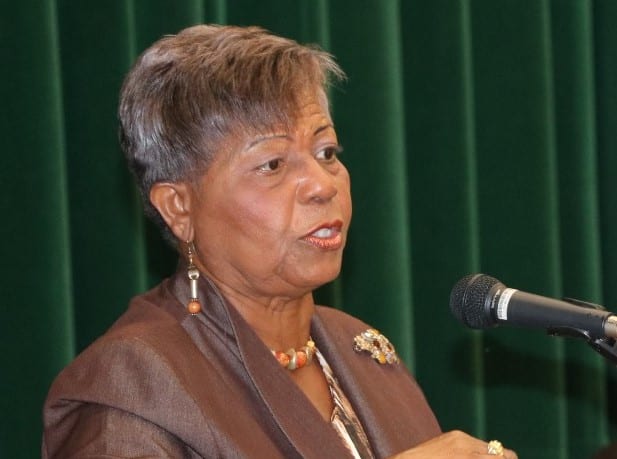
Barbados will receive much-needed bolstering of its social protection system for the most vulnerable amidst the COVID-19 crisis.
This comes after the launch of the United Nations’ (UN) programme entitled: Universal Adaptive Social Protection to Enhance Resilience and Acceleration of the Sustainable Development Goals (SDG) in the Eastern Caribbean at UN House Barbados, yesterday.
Five UN agencies – the United Nations Children’s Fund, the World Food Programme, the International Labour Organization, the United Nations Development Programme and UN Women have come together under the guidance of the UN Resident Coordinator, Didier Trebucq, on the joint initiative to protect small island developing states.
The programme supports the governments of Barbados and Saint Lucia, as well as the OECS Commission, to ensure access to social protection programmes for people in need during times of crisis, including tropical storms and hurricanes.
Given the unprecedented social and economic impacts of COVID-19, the programme is now being used to strengthen the governments’ COVID-19 response.
The global Joint SDG Fund is providing US $3 million towards the effort, with an additional US $1.75 million in contributions from all partner agencies.
Speaking at the launch, Minister of People Empowerment and Elder Affairs, Cynthia Forde, said the programme was initially framed under the Barbados Economic and Transformation programme, but COVID-19 brought the need for such a project into sharp focus.
“While we struggled like all other countries to navigate these uncharted waters as a result of this pandemic, we were also made acutely aware of the deficiencies in our systems which had to be addressed, and addressed with a measure of urgency….
That is why this project, which we considered necessary even before COVID 19, has now become critical, if we are to sustain a social protection framework and system that would secure equitable and just distribution of social services, leaving no one behind.
“We therefore especially welcome the re-purposing of funds to deal with COVID-19 impacts that speaks volumes for the programme’s sensitivity to the needs of small island developing states, such as Barbados and St. Lucia, which are most vulnerable to global shocks. This would not only help us to best address our immediate COVID-19 needs but will serve us well as we go forward, confident that people’s vulnerabilities will not be intensified by future shocks,” Ms. Forde stated.

The Minister pointed out that the UN programme had at its core three primary SDGs – no poverty, gender equality and climate action, SDGs one, five and 13, respectively. She added that these “foundation goals” would help countries in achieving the other SDGs.
Ms. Forde said the Government of Barbados, through the Ministry of People Empowerment and Elder Affairs, developed and implemented a number of initiatives during the COVID-19 pandemic which will become a part of the ministry’s standard operations. These are:
- A Social Services Emergency Operation Centre (SEOC) that stands up at the first sign of any socially related emergency;
- A social services helpline which offers guidance, referrals and hope to vulnerable persons;
- The distribution of nourishing care packages for the most immediate needs;
- More rigorous contingency planning for service delivery.
The Minister cited the cluster of staff members of the National Assistance Board (NAB) which falls under the remit of her Ministry, who tested positive for COVID-19, resulting in the temporary closure of that department. She said this brought the need for even more meticulous emergency planning to the fore.
Ms. Forde explained that the NAB, which addresses matters relating to senior citizens, provides services to over a thousand clients.
She noted that 200 of them are in need of care five days a week, and that the Ministry had to formulate alternative means of looking after the needs of those persons under its care at the time (of the closure).
“So again, we would like to thank the SDG Fund for financing this project to support our COVID-19 responses and as we go forward with what seems to be emerging as our new normal,” she said.
